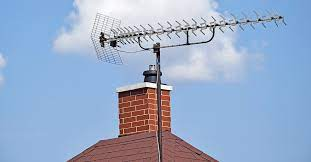
Fiddling with an indoor aerial, opening the cupboard door, or having to stand in one exact spot and not move while holding the indoor aerial are the annoying things that must be done to get a TV signal upstairs! If your signal is just as inconsistent, then it might be worth considering the following items:
It is worth checking the obvious things first, like is the cable firmly attached to the TV and the aerial socket and possibly retuning the TV set or set-top box, which should offer an automatic search function. A typical device for boosting an aerial is a mains-powered signal booster, which will only help if you get a picture on all channels. This will only help if you are getting something.
If your home is close to a transmitter, you might need a signal attenuator designed to reduce signal strength, as sometimes your tuner can be bombarded with too much signal. Similarly, TV signals can be sensitive to interference called ‘induction interference’ from things like washing machines, fridges, mobile phones, etc., so try unplugging appliances near the TV and see what improves your picture.
If all these things fail, you will need to call a professional who can look at the aerial in your loft or a roof-mounted aerial. Find out more about TV aerial repair Bristol by visiting a site such as https://aerial-installations-bristol.co.uk
Why are these aerials so important? Imagine holding your hand and catching words, pictures, and information as they fly past. Well, in simple terms, that is what an antenna or aerial does. They see radio waves and turn them into electrical signals feeding the TV. The transmitter works oppositely and turns the information into radio waves to be sent out for aerials to receive.
Many indoor TV aerials are dipoles because metal rods are split into two pieces. Outdoor aerials have several dipoles stretching out from a central rod. Dipoles work very directly, which is why they have to be positioned facing the way. They pick up radio waves that are travelling at right angles to them.
An aerial’s bandwidth refers to how many frequencies it can detect. The broader the bandwidth, the more radio waves it will pick up, which is particularly useful for TV signals. The science behind it is fascinating when you think about what happens when you power up your television.


